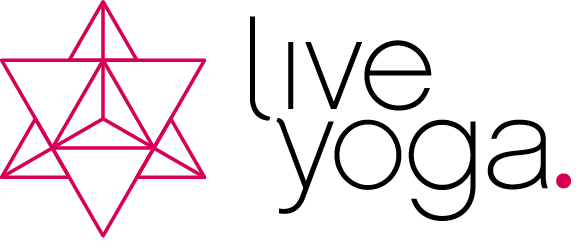Yoga & Negative Self-Talk
Yoga for many of us can be hard to get our head around in the beginning. Understanding the yogic language is hard enough - ‘root your feet to the earth’, ‘drop the tailbone’, ‘lift the heart up’, and some more flowery language, ‘smile your collarbones open’; no, I’ve never quite got that one either.
If you could also stand on one leg, cinch the waist, relax the shoulders, tighten your glutes and of course breathe, well that would be simply hunky dory. Ideally all these cues wouldn’t be instructed in one go but still, for a newbie there is often and understandably the response, ‘I have no idea what is going on here’.
For many of us, those early, somewhat confusing days (even the ensuing years) can elicit not only competitive feelings but also that inner dialogue, ‘I’m rubbish, ‘I’m nowhere near achieving that’, ‘Why can’t my body do that?’ None of which are particularly helpful but also not uncommon.
We’ve all been there, attempting a pose that we’re clearly not ready for, ignoring the niggles and the advice from the teacher to, ‘Stay put if you’re new to this pose’ or, ‘If something doesn’t feel right don’t do it’ and, ‘Focus on your breathing’. I’m trying to get into the pose goddamn it and you want me to breathe as well?
And there it is. Our ego. Our ego will happily forsake our body for achievement. That little, ‘I know best voice’, the one that overrides our discerning side, that overrides that deep intuition, the part that really does know best.
Leave the ego at the door. Heard that? I have, several times and it’s so true but for many of us, not easy. However, the more we practice yoga the less bothered we become about our fellow practitioner’s superstar yogic abilities and the less competitive we feel. But, it can take a while to get there. We have so many ‘perfect’ yoga images burnt into our retina we may feel unsure as to what yoga actually is. Is it slim, tanned, clean living people effortlessly pressing up into a handstand and then slowly lowering into some spread eagled arm balance?
Hell no! Of course not but that is what we often engage in on social media (read my other blog on this: https://www.liveyoga.co.uk/blog/yoga-gymnastics-the-detrimental-pull-of-social-media). Let’s come back to reality. My reality, your reality, your neighbour on the mat’s reality. And that’s what we need to tap into, our own space and being. Ask yourself, ‘What do I want from my yoga practice?’
You may not know. I was clueless to what yoga actually is, all I wanted was to be strong and calm without the foggiest idea of how yoga can be a game changer. Consider your yoga journey as a chance to explore. What you body likes, what it doesn’t, what your body is built for and what it isn’t, because skeletally there are some poses we simply will never be able to achieve. Where your mind goes in those quieter, longer holds and what gives up first in those strong, heat building postures - body or mind? And accepting whatever the answer is that arises to each of those because it also allows you to be more accepting of yourself. Practice consciously releasing the need to over analyse what your body can and can’t do, allow yourself to notice where your mind wanders during the quieter moments and can you observe those thoughts without getting involved and passing judgement? Not becoming frustrated if the body doesn’t feel strong enough (yet) to hold those more challenging poses and actually, does it even matter if it doesn’t and maybe never will?
One word sticks out for me in the last paragraph and it’s ‘consciously’. Doing everything with conscious awareness allows us to be with each moment, to tap into our individual nuances and honour and accept the bits we do like and the bits we don’t. By allowing ourselves to consciously acknowledge negative self-talk when it rears its head we can start to rework those ingrained neural pathways with more positive self-talk. How do we do this? There are a variety of ways: breathwork, meditation, mindfulness, journaling, asana practice - anything that allows us space to think, consider and build up slowly this interoceptive experience.
What is interoception? It’s awareness of your internal body states from thirst and hunger to needing the loo to noticing your heart rate to managing your emotions in relation to your environment. I’d like to bring your attention to the last 2 points, i.e. noticing when your heart rate lifts in relation to external experiences and noticing if that particular experience is a trigger? Noticing if you engage in negative self talk based on your environment, i.e. a yoga class? The more interoceptive we become the more we are able to self-regulate and manage our emotions and thought processes.
So next time you’re in a yoga class and you feel yourself looking subtly over your shoulder at your neighbour, ask yourself what is it you’re actually interested in and does it serve a purpose in a positive way for you? Or when a teacher says a cue that you don’t understand do you chide yourself for ‘not getting it’, next time ask them so they can help you make sense of it because you can bet your bottom dollar somebody else will be wondering the same thing. And when you next speak negatively to yourself about a posture you ‘can’t do’, ask the question, how important is this pose and is it a life changer for me if I achieve this? Plus, is my body actually built to do it? If a modification isn’t offered ask the teacher what you can do instead.
The more we build on our knowledge and that sense of conscious awareness the more it starts to make sense - our yoga, our body, our practice, our mind.
Thoughts/comments/questions? Always welcome.
